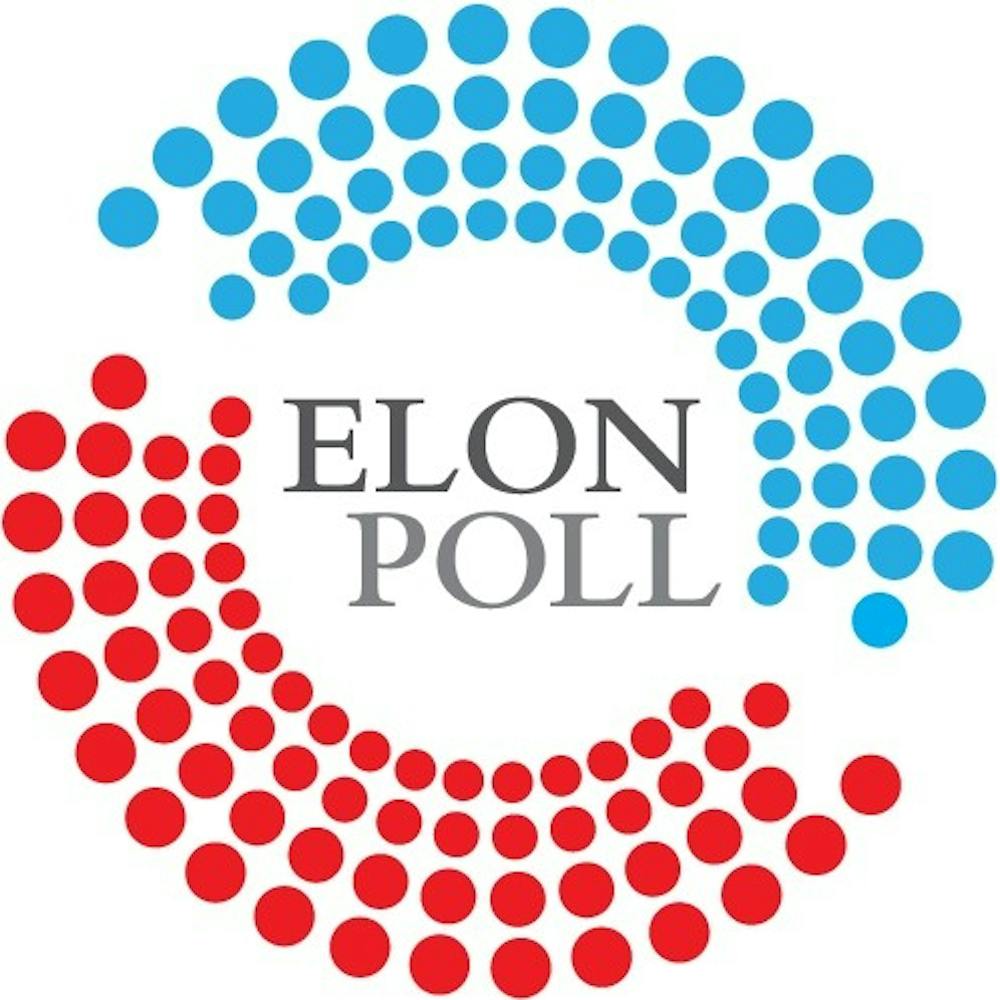
The latest Elon University Poll released Tuesday shows Democratic presidential nominee Hillary Clinton edging Republican nominee Donald Trump by nearly six percentage points in North Carolina, while Democrat Roy Cooper is edging Republican Pat McCrory 48 percent to 44 percent in the governor’s race. The poll also asked potential voters about the treatments of African-Americans by police in light of the recent protests in Charlotte over the killing of Keith Lamont Scott last month.
After a virtual tie in the Elon Poll two weeks ago, Clinton is now beating Trump 44.5 percent to 39 percent in North Carolina. Jason Husser, director of the Elon Poll, said in a press release this is mainly because potential voters believed she out-performed Trump in the Sept. 26 presidential debate. In the first Elon Poll released Sept. 20, Clinton trailed Trump by two percentage points. But 64 percent of likely voters polled who watched the debate said Clinton defeated the real estate mogul, which Husser said has provided her a temporary bump in the polls as a result.
“It’s common to see a bump after a debate but Clinton’s is unusually strong,” Husser said in a press release. “Normally, these bumps will only be temporary, but future campaign events will determine if it will last longer.”
In the governors' race, a shift in the polls also occurred. Two weeks ago, McCrory held a 49 percent to 46 percent lead against Cooper, but the controversial House Bill 2 is halting the republican candidate from gaining and maintaining a lead, according to Husser. Fifty-nine percent of of female voters polled are now planning to vote for Cooper, a drastic reversal from the 52-48 split for Cooper in the Elon poll last month. HB2, known as the “bathroom bill,” was signed into law by McCrory in March and, among other provisions, limits state protections for LGBTQIA individuals. The law has been condemned nationally and has cost the state millions of dollars in cancelled events.
“Backlash over HB2 seems to have harmed Pat McCrory’s poll numbers,” Husser said. “McCrory continues to struggle with women and with African-Americans."
After the protest ravaging Charlotte gained national attention last month, the Elon Poll asked potential voters about race and policing, and the results show a divide between blacks and whites as well as Democrats and Republicans on this issue. Eighty-two percent of black voters polled said police treat African-Americans worse than whites. Only 33 percent of white voters polled shared the same opinion. Within party lines, 72 percent of Democrats polled said police are treated worse than whites — while just 15 percent of Republicans polled agreed.
Husser said the North Carolina voters' thoughts on protesting were among the most interesting results from the Elon Poll: 27.1 percent of North Carolina voters polled thought protesting will cause direct change, while 58.7 percent of voters polled thought otherwise. According to the poll, those results are strikingly similar to results in the 1960s.
“Its interesting that after all of these years and all of these progressive change, many people still think we are close to the same place we were in during the Civil Rights Movement,” Husser said.


